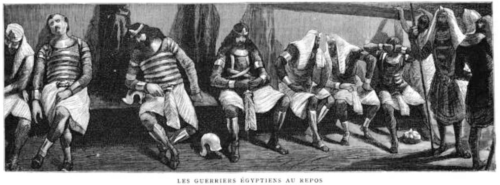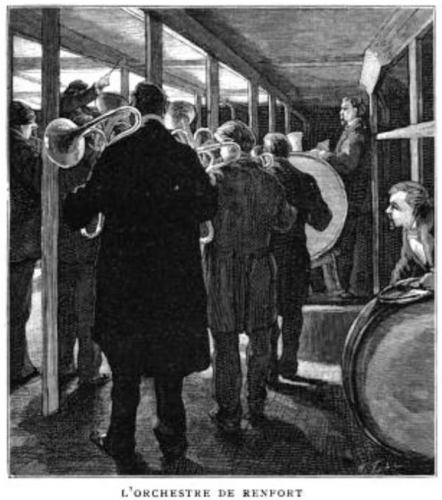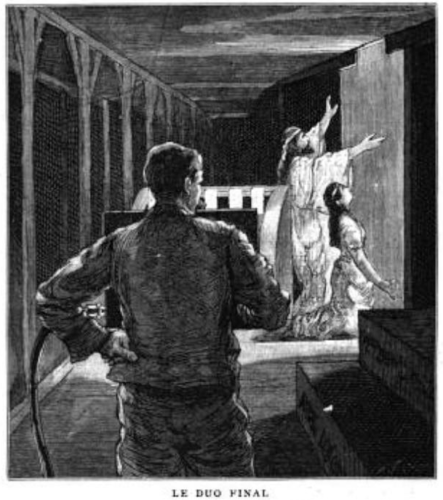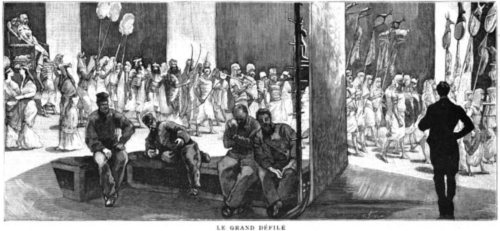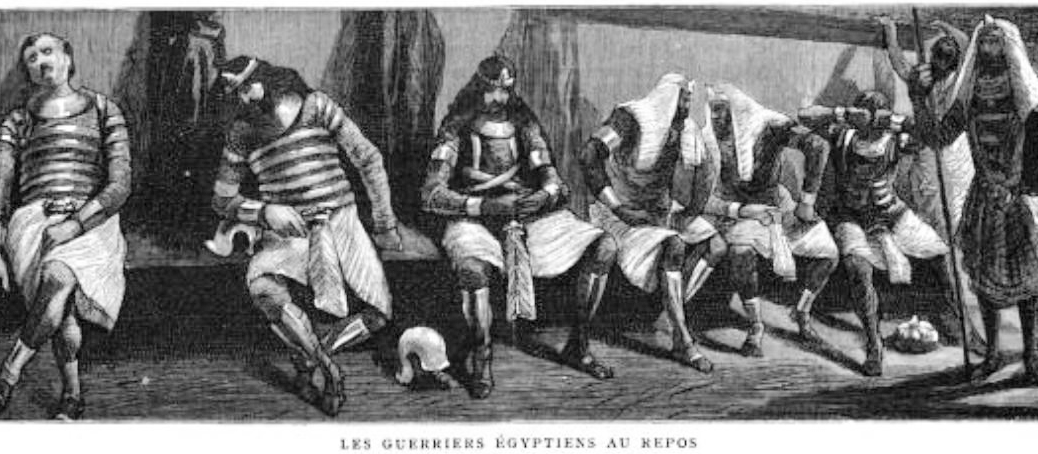The following article comes from The Daily Dispatch, Richmond, VA, December 2, 1880. I added a few paragraph breaks to make it a little easier on the eyes.
Shams in the Theatre
The Ingenious Work of the Property Man–Remarkable Effects Produced with Cheap and Common Materials.
(New York Tribune.)
Theatrical properties, so called, include all things placed upon the stage except what are painted as part of a scene by the scene-painter. Urns, vases, flowers, pictures, pianos, carpets, rugs, furniture, and all ornaments are “properties.” Besides these, all articles used by the actors in the performance of the play, such as canes, cigars, pistols, clubs, knives, pocketbooks, money, and other things of similar nature are properties. The property-man of a theatre has a responsible and arduous-position. Upon him depend many of the important points in a play. The check for $30,000 that saves the impecunious artist from an untimely grave; the secret drawer and hidden will, which, when revealed, restore the wandering heir to his rightful inheritance; the marriage-bell that hangs above the heads of the happy lovers in the fifth act; and the pitiless snow through which the shivering blind girl wanders singing her mournful songs, all are prepared by the property-man. Sad is the lot of that luckless wight who forgets to load the pistol with which the desperate villain is slain. The property-man is provided by the stage-manager with a complete list of the properties needed for each scene, and it is his duty to see that they are prepared and in their proper places before the curtain rises.
In the earlier days of the drama it was customary for the property-man to make all his own properties. Continue reading Shams in the Theatre, 1880 →
